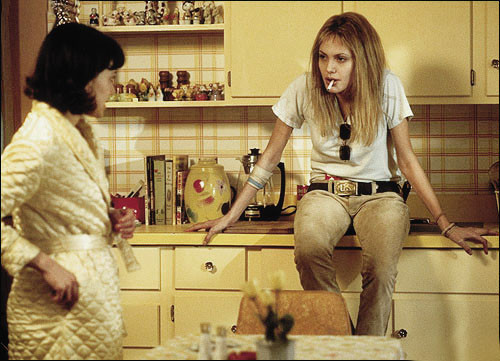jasonmccarthy5
Ex-Bluelighter
- Joined
- Jun 9, 2012
- Messages
- 166
I'm cracking up from the Seinfeld stuff and the Larry David pic. Good stuff guys! I'm such a huge fan of Larry David. lol
That was very well worded and also too preachy.
Tom Cruise in Collateral
Which is why for as many times I have seen American Psycho, I have only watched the ending once. Joe Pesci in Goodfellas is good. If you research Joe Pesci's character in real life, you will realize that he actually fits the description of Serial Killer.Nick Stahl from the brilliant film Bully ( a movie that takes murder seriously and doesn't cop out).
And you can claim "eye of god", that's just your way of not taking into account that American Psycho played itself too straight all along to then go to another level. It just didn't ring true, and the book is by far better.
And you can claim "eye of god", that's just your way of not taking into account that American Psycho played itself too straight all along to then go to another level. It just didn't ring true, and the book is by far better.
Fight Club was one of the best films of the 90s, Vanilla Sky is one of my favorite movies as well. Just thought I'd throw that out there to spark more insults, lol

NSFW:

The Salamanca's are an entire family of sociopaths right there.

Are you sure that Pearce's character really counts? I mean, the guy has severe brain damage and a seriously troubled, seemingly recent past. It's not like he was abused throughout his childhood and thrilled by the prospect of murder itself - he's just out for a vigilante's deeply personal revenge, plain and simple.
I don't understand the point of not having a troubled past either. Severe brain damage can drastically alter someone's personality.
Naturally so, but you must concede that both Gage's and Pearce's character's cases are representative of an outlandish exception to an otherwise dreary rule. While many people with severe brain damage do indeed take a turn for the worse, their personal transformations are typically un-dramatic (i.e., boring and sad) and are often accompanied by severe cognitive dysfunction and a slew of other disabling abnormalities. Both Memento's protagonist and Phineas Gage make such fascinating case studies in part because of the fact that their individual cases are so incredibly sensational and anomalous.
Just because Pearce's case would be an exception to the rule doesn't mean he doesn't fit the category.
There's a lot of people mentioned on this thread that have no allusion to their character's childhood or no allusion to a troubled childhood who are still being considered sociopaths. External factors can still change people even after childhood and the formative years.
I just watched Bully not that long ago and thought about him for this thread. It's hard to not cop out of taking murder seriously when you're basing your movie on a true story, though, heh. I'm not knocking the film at all, I thought it was pretty great (better than "Kids" even), just saying.Nick Stahl from the brilliant film Bully ( a movie that takes murder seriously and doesn't cop out).